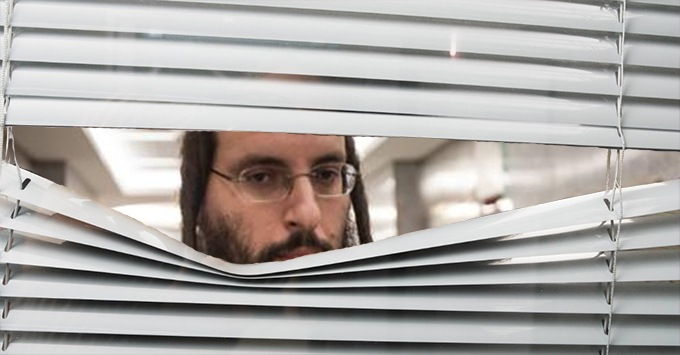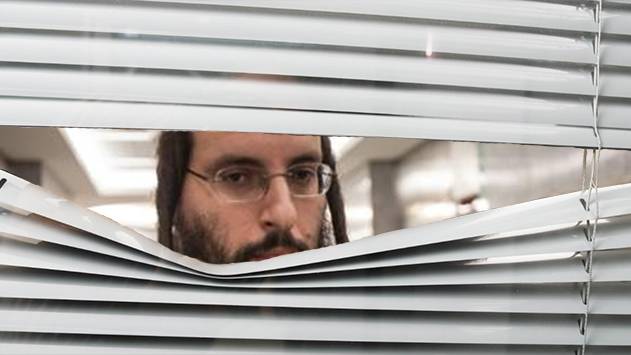Orthodox Jews Set Sights on N.J. Town and Angry Residents Resist
Source: bloomberg.com

Every home is big on glass in a Toms River, New Jersey, neighborhood called North Dover. Windows let in the sun, or show off chandeliers in multistory entrance halls.
These days, though, most homeowners draw the blinds, retreating from brushes with a fast-growing Orthodox Jewish community that’s trying to turn a swath of suburban luxury 10 miles (16 kilometers) from Atlantic beaches into an insular enclave. The rub, a township inquiry found, is “highly annoying, suspicious and creepy” tactics used by some real-estate agents.
They show up on doorsteps to tell owners that if they don’t sell, they’ll be the only non-Orthodox around. Strangers, sometimes several to a car, shoot photos and videos. When they started pulling over to ask children which house was theirs, parents put an end to street-hockey games.
“It’s like an invasion,” said Thomas Kelaher, Toms River’s three-term mayor, who’s fielded complaints from the North Dover section since mid-2015. “It’s the old throwback to the 1960s, when blockbusting happened in Philadelphia and Chicago with the African-American community -- ‘I want to buy your house. You’ll be sorry if you don’t.’ It scares the hell out of people.”
Scholarly Community
The upset has its roots in adjacent Lakewood, home to yeshivas including Beth Medrash Govoha, among the world’s biggest centers for Talmudic study. Scholars typically marry young and start large families that maintain strict gender roles and limit interaction with secular society.
Rabbi Avi Schnall, state director of Agudath Israel of America, which represents Orthodox Jews on political, social and religious issues, said a few sales agents “are overly aggressive and making a bad name for the others.” He declined to say whether anti-Semitism is at work, but said the “extent of the anger” in Lakewood’s neighboring towns is deep, fueling opposition to a learning center, a boarding school, dormitories and other proposals.
In 2014, Toms River accused Rabbi Moshe Gourarie of running a house of worship and community center in a residential area, an issue that in December drew more than 1,200 residents to a zoning hearing to raise concerns about traffic and property values.
“The residents are in an uproar not about the chabad so much, but about the real-estate canvassing,” said Gourarie’s attorney, Christopher Costa. Gourarie and his nonprofit outreach group have nothing to do with people looking for homes, and continue to seek permission to operate, he said.
“He’s been a little shocked to have 1,250 people object to what he’s been doing for 12 years,” Costa said. “Nothing has changed except for he’s suddenly being prosecuted.”
Separate World
The friction reflects increasing insularity among the most religious Jews worldwide. In Israel, the Haredi inhabit a largely separate social world, according to a Pew Research Center survey this month. They share few connections even with their fellow Jews and there is scant intermarriage; 89 percent of the Haredim surveyed said all or most of their close friends belonged to their own community.
Though just 10 percent of America’s 5.3 million Jewish adults identify themselves as Orthodox, they have much larger families than others of their religion, and “their share of the Jewish population will grow,” according to a 2015 Pew survey. Their conservatism could “shift the profile of American Jews in several areas, including religious beliefs and practices, social and political views and demographic characteristics.”
Lakewood, once a rural destination for Rockefellers and other industry titans, is now a land of synagogues, religious schools, kosher groceries and residential neighborhoods in the grip of minivan gridlock. It’s also a place testing the limits of zoning enforcement for 95,000 people, at least half Orthodox, by Schnall’s estimate.
This month, after fire destroyed a single-family home, the Ocean County sheriff said that it was being used as an unauthorized dorm for as many as two dozen yeshiva students. Downtown, inspectors boarded up a commercial building four times, citing non-permitted use as a catering hall and Orthodox study center, only to see the plywood removed and the space reopened. The fifth board-up succeeded, backed by a planning-board ruling, said Steven Secare, the township attorney.
“The trend is going to continue into surrounding areas,” said David Holtz, 43, a Lakewood real-estate agent whose Orthodox clientele is drawn to low crime and sizable newer homes. Toms River residents who don’t want them, he said, are subscribing to “fear of the unknown,” and both Orthodox and secular communities need to abide one another.
Strong Campaign
That’s unlikely, according to Michael Dedominicis, a 40-year-old construction company owner who leads a social-media group called Toms River Strong that urges the town’s 91,000 residents not to sell. His account of dropping by a neighbor’s open house and being denied entry by its Orthodox listing agent is included in a 16-page report on real-estate canvassing issued by township officials Feb. 5.
“Where is the law in this situation?” Dedominicis said in an interview. “I have homeowners calling me, saying, ’They’re converting a three-car garage into bedrooms!’”
The opposition, he said, has nothing to do with dislike of Jews, but with a fear that Toms River will become like Lakewood’s more tattered sections, with cars parked on lawns, overgrown landscaping, trash piled at curbs and residents crowding single-family homes.
The Orthodox dominate Lakewood’s school board. Though most schoolchildren attend private religious school, the township provides free, gender-segregated busing, which helps account for about half of a $12 million budget deficit. Some Toms River residents fear a similar drain.
“I don’t have a problem with you,” Dedominicis said. “I do have a problem with you buying your house, renting it out and bleeding my services.”
On March 18, Toms River will start enforcing a cease-and-desist ordinance, fining door-to-door real-estate agents who solicit owners listed in a “do-not-knock" registry. If the number of for-sale signs on front lawns is any signal, though, homeowners have little confidence in the measure.
Michael Mortellito, 50, with two children college-bound, said this was a good time to scale down from a 6,000-square-foot house, with a resort-like in-ground pool, outdoor fireplace and annual property taxes of $17,000. He acted as his own agent, he said, listing for $850,000, and is under contract with an Orthodox couple.
“They’re the only ones buying,” Mortellito said by telephone. “You’re not going to stop them. They’re going to take the town over no matter what.”
Source: bloomberg.com






















